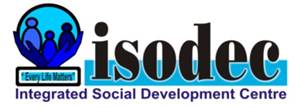Alcohol is a catalyst in a suicide operation, former Chief Psychiatrist Prof. Joseph Bediako Asare has said.
The Director of ‘Peace Be Clinic’ stated in an interview with ClassFM on 4 February 2021 that alcohol is one of the agents that can easily facilitate suicide.
“A lot of people who attempted suicide and didn’t succeed will tell you that they had to use alcohol to be brave enough to do what they wanted to do”, he explained.
He said people seek solace in alcohol as an escape route when facing difficulties in life.
“[It’s] all because of other stresses in life or not knowing the effect of the alcohol on themselves, which may affect their health, they’ll lose their jobs, their relationship with their spouses and people”, he said.
Meanwhile, NGO Vision for Alternative Development (VALD), has, on the occasion of World Cancer Day today, said alcohol consumption is a leading risk factor for cancer but awareness and policy response remains inadequate in Ghana about it.
“After tobacco, alcohol is the second biggest cause of cancer – long before other risk factors such as infections, physical inactivity, or sunlight,” VALD said in a statement.
“The fact that alcohol is a carcinogen has been clearly confirmed,” Labram Musah, Director at VALD noted.
“In fact, science knows since the 1980s that alcohol causes cancer. But we are concerned because public awareness and policy action has so far been inadequate,” he added.
VALD bemoaned further that public awareness on the causes of cancer is low as compared to other communicable diseases such as HIV/AIDS.
“Alcoholic advertisements are aired on television, radio and online portals without in-depth education on the end results of the consumption,” the statement said.
VALD, therefore, called on the government to make cancer prevention a priority by implementing high-impact alcohol policy solutions, such as alcohol taxation.
“And we need a national conversation about the real effects of alcohol, such as cancer, to raise public awareness,” the statement added.
Read the full statement below:
Alcohol Consumption; a Leading Risk Factor for Cancer. But Awareness and Policy Response Remain Inadequate
On World Cancer Day, the Vision for Alternative Development (VALD) is pleased to associate itself to the call by countries, the World Health Organization and civil societies who are joining forces to raise awareness of the global cancer burden and take further steps to better prevent and reduce cancer.
The need to step up cancer prevention and control around the world and in Ghana is immense amidst Covid-19. For instance, the WHO warns that, if current trends continue, the world will see a 60% increase in cancer cases over the next two decades. An estimated 81% in new cases will occur in low- and middle-income countries, where survival rates are currently lowest.
After tobacco (18%), alcohol is the second biggest cause of cancer – long before other risk factors such as infections (3%), physical inactivity, or sunlight.
”The fact that alcohol is a carcinogen has been clearly confirmed,” says Labram Musah, Director at Vision for Alternative Development.
“In fact, science knows since the 1980s that alcohol causes cancer. But we are concerned because public awareness and policy action has so far been inadequate.”
Alcohol causes 10.3 million cancer disability-adjusted life years lost, representing 4.2% of all cancer disability-adjusted life years lost worldwide in 2016.
For breast cancer globally, alcohol is the single biggest risk factor. In total, alcohol-related cancer causes 650,000 deaths every year.
Recent data indicates that the proportion of cancers attributable to alcohol worldwide has increased.
A large part of the alcohol-related cancer burden originates from light to moderate alcohol consumption. Therefore, population-level preventive strategies are best suited to reduce the alcohol-attributable cancer burden. These are alcohol taxation, alcohol availability regulations and alcohol advertising bans. ”Alcohol-attributable cancer is largely preventable – through evidence-based, cost-effective, and high-impact alcohol policy solutions,” says Labram Musah, Director at Vision for Alternative Development
”Evidence shows that informing people, increasing awareness and understanding of alcohol’s cancer risks leads to bigger support for alcohol prevention and control measures. This in turn leads to significant reductions in cancer mortality.
We calculated the cancer deaths averted from improved alcohol policy through a 10% and a 30% total per capita alcohol consumption reduction scenario.
In Ghana it is estimated that 76.7% of Ghanaians aged 15 years and above are either lifetime abstainers or have abstained from drinking alcohol in the past 12 months. This means that 23.3% of this population (aged 15years and above) take alcohol. It is also estimated that 2.1% of the population engage in heavy drinking among the same age group (15 years and above).
However, public awareness on causes of cancer is low as compared to other communicable diseases such as HIV/AIDS. Alcoholic advertisements are aired on television, radio and online portals without in-depth education on the end results of the consumption.
“We call on our government to make cancer prevention a priority by implementing high-impact alcohol policy solutions, such as alcohol taxation.
“And we need a national conversation about the real effects of alcohol, such as cancer, to raise public awareness.”
For further information, kindly contact:
Labram Musah, Programme Director Vision for Alternative Development
Convener, the Ghana Advocacy Network on Health Promotion
Source:Class FM














